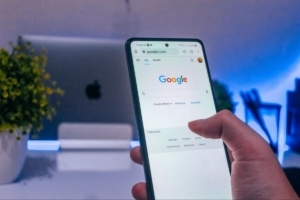![]()
Eric Goldstein
Published on: January 3, 2023
The district attorneys from Washington DC and Indiana both announced that they have reached a settlement with Google to resolve a lawsuit that accused the tech giant of tracking users’ locations.
D.C. district attorney Karl A. Racine said that Google has agreed to pay $9.5 million, while Indiana DA Todd Rokita confirmed that Google will pay $20 million. The $29.5 million is in addition to the nearly $400 million Google agreed to pay to over 40 states for similar offenses.
“Given the vast level of tracking and surveillance that technology companies can embed into their widely used products, it is only fair that consumers be informed of how important user data, including information about their every move, is gathered, tracked, and utilized by these companies,” said AG Racine in the press release. “Significantly, this resolution also provides users with the ability and choice to opt of being tracked, as well as restrict the manner in which user information may be shared with third parties.
“I am proud of how the exceptional lawyers and professionals in my office have creatively applied the District’s strong consumer protection laws to set the standard nationally and provide users far greater control of their personal information.”
According to the press releases issued by the offices of both district attorneys, the states opened investigations into Google in 2018 after the Associated Press published a story on Google’s deceptive location tracking technology. The AP article said Google revealed your location even when you didn’t want it to, and it also repeatedly told users to enable location tracking in certain apps and said products would not function properly if the location tool was not enabled.
Attorney General Rokita said in the press release that location data can expose a person’s identity and routines, which can be used to infer personal details such as political or religious affiliation, income, health status, or participation in support groups — as well as major life events such as marriage and the birth of children.
“This settlement is another manifestation of our steadfast commitment to protect Hoosiers from Big Tech’s intrusive schemes,” Attorney General Rokita said. “We will continue holding these companies accountable for their improper manipulation of consumers.”













